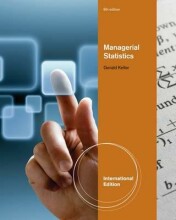Corporate Governance: The Legal Framework
18 important questions on Corporate Governance: The Legal Framework
What 3 elements form corporate governance?
2. Shareholders - the owners (members of the company)
3. Management - directors of the company
What is a director?
When are you not eligible to be a director in the UK?
2. A company can be the director of another, but at least one director must be a natural person
3. If candidate is an undischarged bankrupt
4. Disqualification order (convicted, persistent breaches of company law, fraud, unfitness in way company was managed)
- Higher grades + faster learning
- Never study anything twice
- 100% sure, 100% understanding
What are the disadvantages of the UK rule that allows shareholders to remove directors in general meetings?
2. When there are voting agreements between the director and shareholders
3. Compensation can be costly
4. Weighted voting provisions
What are the 5 different types of directors?
2. Non-executive directors - not making career in the company but critical
3. Chairman of the board - main person of the board
4. Alternative director - person that replaces the director
5. Shadow director - functioning as director but not appointed director
In what ways does a shadow director differ from a normal director?
What are the 7 director duties?
2. Directors must act within their powers
3. Duty to exercise independent judgement
4. Obligation to promote the success of the company for members and take other stakeholders into account
5. Keep themselves from conflict of interest situations
6. Must not accept benefits from 3rd parties because he's director
7. Duty to disclose (self-dealing rule)
When is a director not personally liable in case of a breach?
2. If directors of a private party, who are disinterested parties, authorise the breach. If it's a public company, the Articles must allow it
What is the difference between ordinary resolutions and special resolutions?
When will minority shareholders be heard in court?
2. Personal actions: representative actions, shareholder class actions
What are shareholder class actions?
What is the order of party priority in case of liquidation?
2. Liquidator
3. Preferential creditors
4. Floating charge holders
5. Unsecured trade creditors
6. Shareholders
What 4 things can directors have personal liability for in case of liquidation?
2. Director liable to contribute to the company's assets
3. Wrongful trading
4. Allowing company to trade at a loss
What are the 2 alternatives to winding up?
2. Attempts to save the company
What is a moratorium?
What is the business judgment role?
What are the prevention techniques for director conflicts of interest?
2. Consent
3. Organisational duties
4. Techniques against circumvention
What measures are there if conflicts of interest lead to unlawful behaviour?
2. Liability for damages and disgorgement of profit
3. Stepping down/dismissal
4. Disqualification
The question on the page originate from the summary of the following study material:
- A unique study and practice tool
- Never study anything twice again
- Get the grades you hope for
- 100% sure, 100% understanding





























